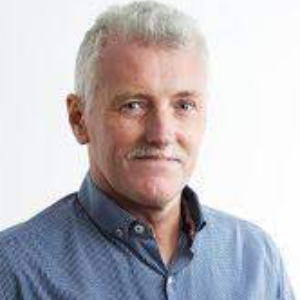Title : Improving patient outcomes through excellence in nursing and research
Abstract:
The search for excellence in child health nursing can be frustrating, yet we ought to aspire to it, patients and their families expect it, and claims are often made to it. What constitutes excellent nursing and how we can recognise it are difficult to establish. Sometimes we recognise a centre of excellence, but that is often associated explicitly more with medical excellence – novel surgical techniques, avant-garde appliance of science, and pioneering use of bold remedies. Certainly, little of this would come to fruition without excellent nursing, but it is harder to identify the components of this part of the endeavour.
Excellence has been equated with patient satisfaction, yet most patients and families would never know if lives were put at risk by poor infection control or inadequate observation. Satisfaction is closely aligned to what the Chief Nursing Officer for England termed “The 6 Cs”: care, compassion, courage, communication, commitment and competence. Patient satisfaction may capture part of these vital aspects of nursing (and, hopefully, other health care roles), yet even these central components are complex, and achievement of one (for example, being compassionate) may mask lack of achievement in another (for example, competence).
For some, excellence in nursing is about “how” rather than “what” is done in nursing. The journey is what matters rather than the destination. The main problem with this approach is that process is no guarantee at all of outcomes. Perfectly competent actions can result in no positive change for children. We have to go beyond process and seek to establish outcomes – whether from practice development work or from research.
All too often, given the persistent demands placed on nurses, the never-ending churn of policy changes, and the repetitive publicising of political soundbites, child health nurses, like other health care professionals can be seduced to the Dark Side of political rhetoric and organisational policy. Meeting targets becomes the key priority, with attendant display of charts evidencing compliance. This is not the path to excellent nursing.
We lack the evidence to state convincingly what is excellent about nursing, and, crucially, what it achieves. Nursing often happens against a background of multi-disciplinary working, with nursing providing the coordinating glue holding it all together. The unique nursing role can be lost in this. The outcomes specifically of nursing generally remain unknown.
Research is one way that we change things for individuals and populations: saving lives, making lives worth living, and preventing problems ever developing. However, evidence-based practice at best is based only on the state of the evidence at any given time. Today’s evidence may be tomorrow’s ridicule, so the search for more and better evidence has to continue. Periodic wake-up calls and calls to action spur us on to try again. Research, however, can exert positive impact children’s lives – directly and indirectly through policy change. If we engage in research or practice development we MUST focus outcomes for children and their families. Then, we must communicate and share what we find so that others will also have the new knowledge and be able to implement the same changes.
Audience Take Away:
The importance of going beyond process to establish the impact on patients.
The need to identify what nursing as a professioncan do to achieve this.
Excellence in nursing depends upon nurses being clear what the nursing role is and what nursing can achieve.



